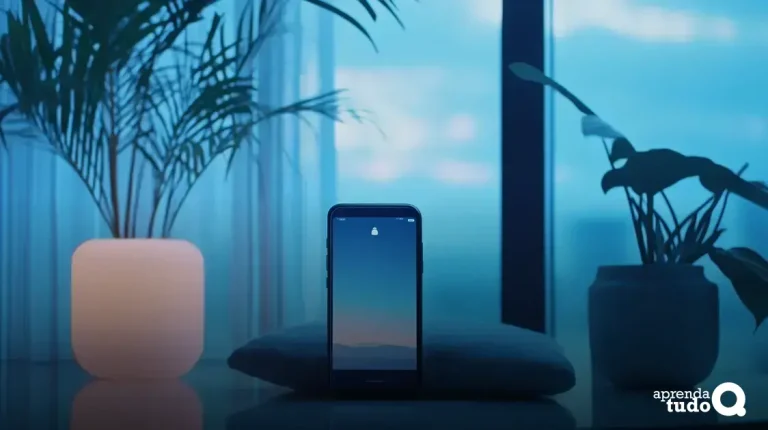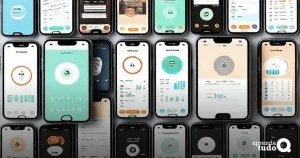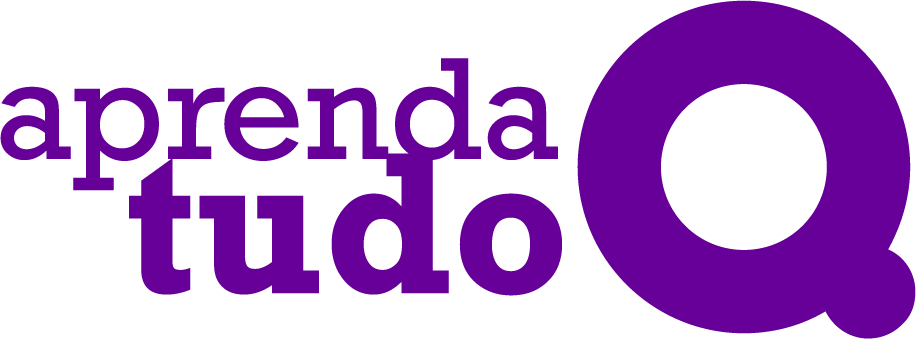Apps for mental health provide accessible resources, personalised experiences, and support tools to enhance emotional wellbeing.
By effectively using these apps and balancing technology with real-life connections, individuals can significantly improve their mental health journey.
In today’s fast-paced world, apps for mental health have become crucial in managing emotional wellbeing.
With the rise of technology, many individuals are turning to these tools for support and guidance.
Benefits of Using Apps for Mental Health
Using apps for mental health offers a variety of benefits for users seeking support and improvement in their emotional well-being.
These digital tools can be accessible, tailored for individual needs, and provide many resources to help users manage their mental health.
Accessibility and Convenience
One of the significant advantages of mental health apps is their accessibility. With just a smartphone, users can access the tools they need anytime and anywhere.
This convenience means that individuals can seek help during critical moments, ensuring they never feel alone in their journey.
Personalisation of Care
Mental health apps often allow for customised experiences. Users can choose features and resources that cater to their specific needs, making their mental health journey more effective.
Whether it’s guided meditations, mood tracking, or therapy chat options, personalisation is vital.
Cost-Effectiveness
Many mental health apps are free or have affordable subscription fees, making them a cost-effective alternative to traditional therapy sessions.
This accessibility means that more individuals can access the support they require without financial burden.
Supporting Self-Monitoring
Apps often include features that enable self-monitoring. Users can track their moods, thoughts, and behaviours over time.
This self-awareness can lead to better understanding and management of their mental health.
Community and Support
Many apps have community features where users can connect with others facing similar challenges. This sense of community provides emotional support, reassurance, and the knowledge that they are not alone.
Immediate Coping Strategies
Mental health apps offer immediate coping strategies and techniques. Whether it’s breathing exercises or mindfulness activities, users can quickly access tools to manage anxiety or stress as it arises.
Ultimately, using apps for mental health can significantly enhance an individual’s journey towards emotional wellbeing by offering practical solutions, immediate access, and community support.
Top 5 Apps for Mental Health
Many apps are designed to support mental health, offering various features tailored to individual needs. Here are the top five apps for mental health that stand out:
1. Headspace
Headspace is an app that focuses on meditation and mindfulness. With guided meditations, it helps users reduce stress, improve focus, and get better sleep.
It’s beginner-friendly and provides themed sessions to address specific challenges.
2. Calm
Calm is perfect for relaxation and mindfulness training. It offers serene soundscapes, sleep stories, and breathing exercises.
This app encourages users to build a personal daily routine centered around their mental wellbeing.
3. Moodfit
Moodfit is a comprehensive mental health app focusing on mood tracking and behaviours. Users can monitor their mood, set goals, and access mental health resources.
Its features promote self-discovery and enhanced mental resilience.
4. Joyable
Joyable is designed for those dealing with anxiety and depression. It provides CBT (Cognitive Behavioural Therapy) exercises and support through motivational messaging.
This app acts as a digital therapist, helping users develop healthier thinking patterns.
5. Insight Timer
Insight Timer is a meditation app that offers a large library of free guided meditations from various teachers.
Users can explore different techniques and practices that resonate with their personal mental health journey.
Each of these apps has unique benefits, providing valuable tools for users looking to improve their mental health in an accessible manner.
How to Choose the Right App for You
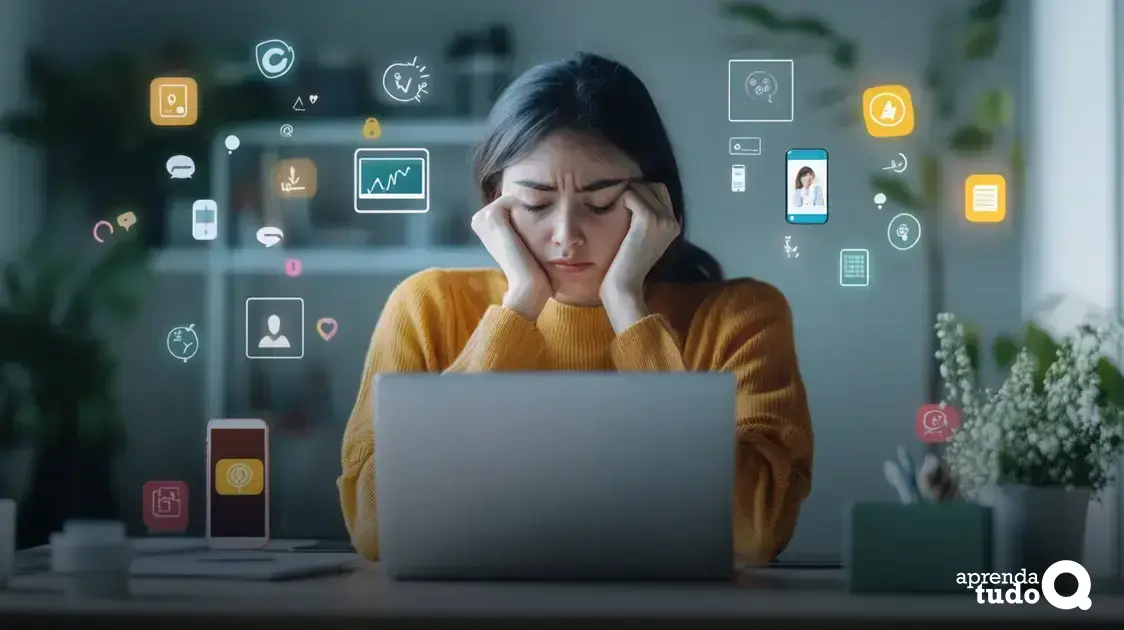
Choosing the right app for mental health can greatly impact your wellbeing. Here are some key factors to consider in making the best decision for yourself:
1. Identify Your Needs
Before downloading an app, reflect on what you need to support your mental health. Are you looking for guided meditations, mood tracking, or therapy resources?
Knowing your needs can help you narrow down your options.
2. Check Features
Different apps offer various features. Consider what is important to you, such as ease of use, customisation options, or access to professional guidance.
Look for apps that align with your preferences to ensure they are effective.
3. Read Reviews
User reviews can provide insights into the app’s effectiveness and usability. Look for feedback from individuals with similar mental health challenges to see if the app has worked for them.
4. Test Multiple Apps
Don’t hesitate to try out a few apps to see which one you prefer. Most mental health apps offer free trials or basic versions, allowing you to test their features before committing to a purchase.
5. Consider Privacy and Security
Mental health apps often require personal information. Ensure the app you choose respects your privacy and has strong security measures in place to protect your sensitive data.
6. Look for Additional Resources
Some apps provide extra resources like articles, forums, or online support communities.
These additional tools can enhance your mental health experience and create a sense of connection with others.
By considering these factors, you can find the right mental health app that suits your individual needs and supports your journey towards wellness.
User Reviews and Experiences
User reviews and experiences play a vital role in understanding how effective mental health apps can be. Here are some insights from real users to guide you:
User Experiences
Many users have reported positive changes in their lives after using mental health apps. Users often highlight improved mood, better stress management, and increased mindfulness.
For instance, one user noted that the guided meditations helped them feel more centred and relaxed during busy days.
Success Stories
Several individuals have shared their success stories online.
They have described how these apps helped them track their moods and emotions effectively, enabling them to recognise patterns and triggers in their mental health.
By monitoring their progress, many users feel empowered to take control of their wellbeing.
Going Beyond Traditional Therapy
Many users appreciate that these apps serve as a complement to traditional therapy.
They often provide additional tools and resources between therapy sessions, helping users stay engaged in their mental health journey.
Accessibility
Users have expressed gratitude for the accessibility of mental health apps. They can easily access support whenever they need it, which is especially beneficial during crises.
Users often appreciate having mental health resources at their fingertips.
Community Connection
Community features within apps have helped users feel less isolated. Some apps offer forums or groups where users can share their experiences, providing a sense of belonging and mutual support.
As you explore mental health apps, consider these user reviews and experiences. They can provide valuable insights as you find the right tool to support your mental wellness journey.
Tips for Effective Use of Mental Health Apps
To make the most out of mental health apps, here are some helpful tips to ensure effective use:
1. Set Clear Goals
Before you start using a mental health app, think about what you want to achieve. Setting clear goals can help guide your journey.
Whether it is tracking your mood or practising mindfulness, having a focus can make the experience more productive.
2. Create a Routine
Incorporate the app into your daily routine. Dedicate a specific time each day to use the app, like during breakfast or before bed.
Consistency can improve your results and help you make it a habit.
3. Engage with Features
Mental health apps often include various features. Take advantage of these resources—such as guided meditations, journaling, and progress tracking.
Engaging with multiple aspects of the app can lead to a more enriching experience.
4. Be Honest
When tracking your moods or experiences, be honest with yourself. Accurate tracking can help you and any mental health professionals you work with to understand your patterns better.
This can lead to more effective strategies for managing your mental health.
5. Reach Out for Help
If the app has community features, don’t hesitate to connect with others. Sharing experiences can provide support and inspiration. Remember, you are not alone in your journey.
6. Monitor Progress
Regularly review your progress within the app. Many apps offer charts or summaries of your activities. Understanding your achievements or areas where you struggle can help you adjust your strategies effectively.
7. Balance with Real Life
While mental health apps can be great tools, remember to find balance. They should complement, not replace, real-life support from friends, family, or professionals.
Make sure you also dedicate time to offline activities that boost your mental well-being.
By following these tips, you can effectively use mental health apps to support your journey towards emotional wellness.
Future of Apps in Mental Health Care
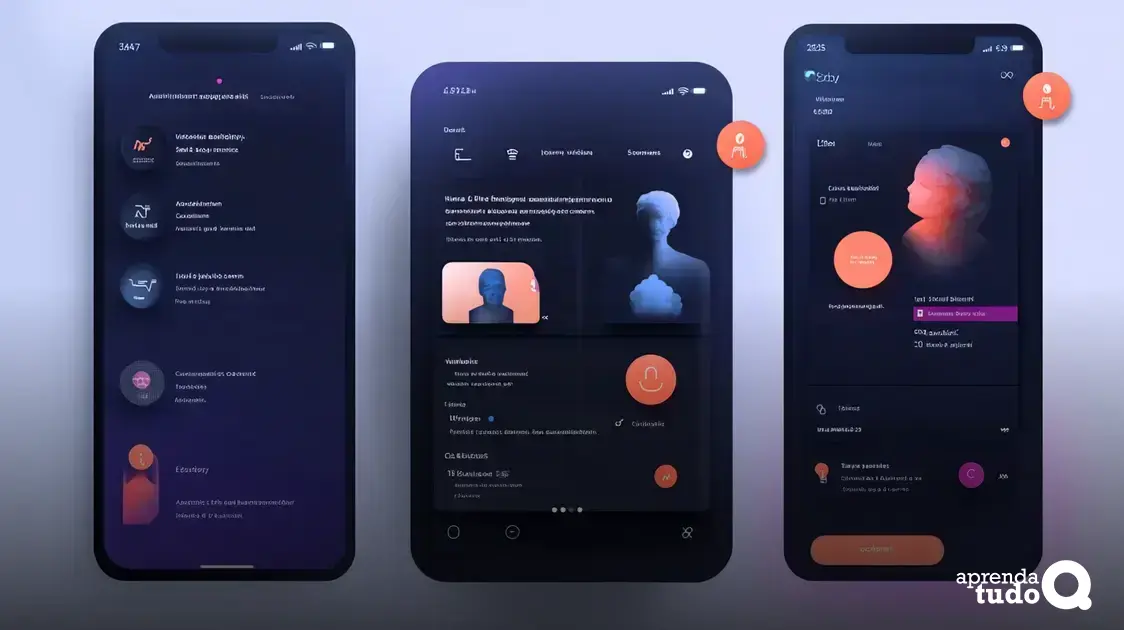
The future of apps in mental health care looks promising as technology continues to evolve.
1. Enhanced Personalisation
As artificial intelligence (AI) develops, mental health apps will offer increased personalisation. Users can expect apps to adapt to their preferences, behaviours, and mental health journeys.
This could mean customised content, tailored strategies, and suggestions based on real-time data.
2. Integration with Health Data
The integration of wearable technology with mental health apps is on the rise. Tracking physical activity, sleep patterns, and vital signs can provide valuable insights into mental health.
By combining data from wearables, users can achieve a more comprehensive understanding of their emotional and physical wellbeing.
3. Teletherapy Features
Teletherapy is becoming more common, allowing users to connect with mental health professionals through apps.
Future apps may focus on providing easy access to therapists, video consultations, and chat features, making it simpler to seek help when needed.
4. Community Support
More apps may incorporate community features, enabling users to connect with others.
Support groups and platforms for sharing experiences can foster a sense of belonging, which is essential in mental health journeys.
5. Better Accessibility
As technology continues to improve, mental health apps will likely become more accessible to diverse populations.
Features such as multi-language support and culturally relevant content can help users from different backgrounds find support.
6. Regular Updates and Research-Driven Content
The future of mental health apps will involve regular updates based on the latest research.
App developers will work with mental health professionals to ensure users receive reliable information and evidence-based practices.
With these advancements, mental health apps are set to play a pivotal role in supporting people’s mental wellbeing and integrating more seamlessly into their health care.
The next generation of apps has the potential to make mental health resources more accessible, personalised, and effective.
Balancing Technology and Mental Health
Balancing technology and mental health is essential in today’s digital world. While mental health offer great benefits, it’s important to use them wisely.
Here are some tips for striking a healthy balance:
1. Set Time Limits
Be mindful of how much time you spend on apps. Setting daily or weekly time limits can help prevent technology from becoming overwhelming or addictive.
This encourages intentional use rather than endless scrolling.
2. Prioritise Real-life Connections
While interacting online can be helpful, remember to nurture real-life relationships. Friends, family, and community support are vital for emotional wellbeing.
Balance app usage with face-to-face interactions.
3. Focus on Quality Over Quantity
Not all apps are created equal. Choose high-quality mental health that align with your needs and provide valuable resources.
Avoid downloading multiple apps that may cause confusion or distraction.
4. Schedule Breaks from Screens
Incorporating screen-free time into your day can reduce fatigue and enhance mental clarity.
Engage in activities that don’t involve screens, such as reading, walking, or practicing mindfulness.
5. Listen to Your Feelings
If using a mental health app starts to feel taxing, consider taking a break. Pay attention to your emotions and adjust your usage accordingly.
Take time to evaluate if the app still serves your needs positively.
6. Seek Professional Guidance
While apps can offer support, they should not replace professional help. If you find yourself struggling, it’s important to consult with a mental health professional who can provide personalised care.
By implementing these strategies, you can create a healthy relationship with technology while promoting your mental health and wellness.
Balance is key to making the most of the tools available.
Embracing Apps for Mental Health</h2&gt;
Mental health app offer great potential to support emotional well-being and provide valuable resources for those struggling with mental health challenges.
By understanding the benefits, learning how to choose the right tools, and engaging with user experiences, individuals can find apps that enhance their journey.
Following practical tips for effective use can lead to improved outcomes while balancing technology and mental health is essential to ensure users maintain their overall well-being.
As these apps continue to evolve, they will further integrate into mental healthcare, making support more accessible and personalised.
The combination of technology and mental health care can play a crucial role in fostering healthier communities and providing individuals with the tools they need to thrive.

